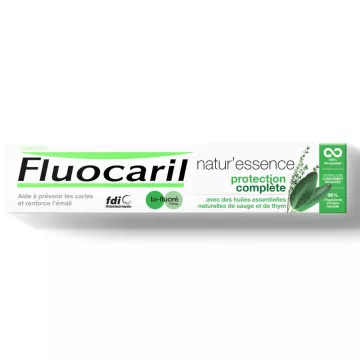
What is gum care?
Gum care is a set of practices designed to maintain healthy gums and prevent periodontal disease. It includes brushing, flossing, rinsing and regular visits to the dentist. Healthy gums are essential for supporting teeth and preventing problems such as gingivitis and periodontitis.
Why is it important to look after your gums?
Gums play a crucial role in oral health. They protect tooth roots and jawbones from infection. Inadequate gum care can lead to periodontal disease, which is a serious infection of the gums that can lead to tooth loss. In addition, studies show a link between gum health and systemic diseases such as diabetes and cardiovascular disease.
How can gum disease be prevented?
To prevent gum disease, it's essential to follow a rigorous oral hygiene routine:
What are the signs of gum disease?
Signs of gum disease include:
What treatments are available for gum disease?
Treatment for gum disease depends on the severity of the condition. Options include:
How do I choose the right gum care products?
To choose the best gum care products, look for those approved by recognized dental associations. Products should contain fluoride to strengthen tooth enamel and antibacterial ingredients to reduce plaque. Good toothpaste, an electric toothbrush and antiseptic mouthwash are key elements of your routine.
How important is diet in gum care?
A balanced diet is crucial to gum care. Foods rich in vitamin C, such as citrus fruits, help maintain healthy gums. Dairy products provide calcium to strengthen bones and teeth. Avoid sugary foods and acidic drinks, which can damage tooth enamel and irritate gums.
Can gums regenerate?
Gums cannot regenerate completely once damaged, but it is possible to halt the progression of gum disease and strengthen existing tissue with appropriate care. Treatments such as root planing and gum grafts can help restore some of the gum structure.
Do children need special care for their gums?
Yes, children need special care for their gums. Teach them to brush their teeth properly from an early age. Use a children's toothpaste containing fluoride, and make sure they floss daily. Regular visits to the dentist are also essential to monitor their oral health.
What are the effects of smoking on the gums?
Smoking has devastating effects on the gums. It reduces the blood supply to the gums, slowing healing and increasing the risk of infection. Smokers are more likely to develop periodontal disease and gum recession. Quitting smoking is one of the best things you can do to improve your gum health.
How does stress affect gum health?
Stress can have a significant negative impact on gum health. Chronic stress weakens the immune system, making the body more vulnerable to infections, including periodontal disease. In addition, stressed individuals may neglect their oral hygiene, grind their teeth (bruxism) and adopt harmful behaviors such as smoking, all of which aggravate gum problems.
What are the effects of medication on the gums?
Certain medications can affect gum health in different ways. For example, antihypertensive drugs, antidepressants and oral contraceptives can lead to dry mouth, increasing the risk of cavities and gum disease. Anti-epileptic drugs and some immunosuppressants can cause gingival hypertrophy, a swelling of the gums. It's important to discuss potential side effects with your dentist.
How important is plaque control in gum care?
Plaque control is essential for gum care. Plaque is a sticky film of bacteria that constantly forms on teeth. If not regularly removed by brushing and flossing, it can harden into tartar, leading to gum inflammation (gingivitis) and more serious periodontal disease. Rigorous oral hygiene and regular professional cleaning are essential to keep plaque under control.
Can gums bleed for no apparent reason?
No, gums don't usually bleed for no apparent reason. Bleeding gums are often a sign of inflammation due to plaque build-up along the gum line. It can also be caused by poor brushing or flossing technique, nutritional deficiencies, hormonal changes, or underlying medical conditions such as diabetes. If your gums bleed regularly, consult your dentist for an accurate diagnosis and appropriate treatment.
What are the benefits of advanced periodontal treatments?
Advanced periodontal treatments offer several benefits for gum and tooth health. These treatments include root planing, gingival grafts, guided tissue regeneration and periodontal pocket reduction procedures. They help to: